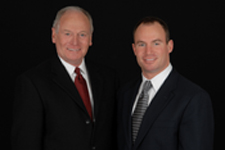|
 |  |
The Case for Durable Change - Transforming Underperforming Clubs
 By Harvey Weiner & Mark Weiner By Harvey Weiner & Mark Weiner
Partners of Search America�
PUBLISHED IN BOARDROOM MAGAZINE
Three stages of change: (1) that's a terrible idea. (2) we tried that before and it didn't work. (3) that's the best idea I ever had.
Successfully altering organizational direction is proportional to leadership's observable support for change. Dynamic private clubs continually morph, establishing new systems, procedures, equipment, services, menus, management, board members, playing conditions, member demographics and fresh expectations. Recent studies found that less than 40% of "change" actually leads to sustained benefit. Strategic, systemic, durable transformation of a club requires leadership commitment and unwavering advocacy, focus, preplanning, discipline, employee buy-in and diligent follow up... much more cost-effective than damage control following a failed change attempt.
THE FOUR STEPS ON THE LADDER OF CHANGE
1. Committed club leadership. Verbal and non-verbal leadership messages are easily detected by those responsible for effecting change. "If you want to try it go ahead", clearly signals unenthusiastic support. Staff, sensing that change isn't your priority, will impede progress. Leaders lead by advocating change and remaining enthusiastically engaged. Credible, respected, supportive club leaders must be out front leading the charge, not nit-picking.
2. Building a reasoned and convincing case for change. Members and staff must realize what is at stake if the change is or is not implemented. Leadership must clearly and consistently express their support and the justification for a particular change. Advocates must restate the vision behind the change, help members and staff to see it as a vital component of an overall strategy, support its importance to the club's mission, and restate the consequences of maintaining status quo. Stakeholders must buy-in to the vision and understand their role in achieving the objective.
3. Employee ownership. People take the greatest pleasure and tend to support those ideas which we personally helped generate. Consequently, effective, durable change takes root when the team is engaged in the creation, planning and implementation of change. Acknowledge the talent of your club's management, department heads and rank-and-file. Servers, bartenders, membership directors, teaching pros, locker and card room attendants read the pulse of the membership. They offer perspective, experience, intelligence, skills and presumably, dedication to the club's welfare. Sure, to some the club is merely a paycheck and benefits. To many the club is integral to their lives, club members are family and coworkers their closest friends. Actively listen and hear them. Every employee needs the club to succeed, whatever their motivation.
4. Sustained, durable improvement. Effective change takes place when everyone sees it as a natural component of their routine, rather than something they've been "sold". Skeptics are more likely to support change that is rooted in logic, easily understood, internalized and requires no hype. Employees understand and value their personal contribution to the club's evolution when appropriately empowered, so integrate progress elements of the change into their individual and departmental incentives, with achievable, measurable goals. Then recognize their success among their peers.
The idea of change can be challenging, frightening or even threatening, but it possesses the power to energize moribund institutions. Durable change requires continual monitoring:
A. Establish Change Agent Squads comprised of staff responsible for implementing change within defined areas of accountability, measured against challenging yet achievable goals.
B. Form a Change Review Committee, made up of Change Agent Squad leaders reporting periodically on squad progress.
C. Survey members and staff, measuring perceptions of change over time.
D. Institute a Club Leadership Roundtable: a ten-seater visible to others in the club's main dining area. Invite an eclectic selection of vocal members to lunch with the president and general manager on, say the first Wednesday each month. Facilitate conversation regarding where the club is relative to the strategic plan and to their vision of the club.
Invest time up-front, building the critical, supportive structure. Then watch the transformation flourish, as naysayer converts proudly proclaim, "That's the best idea I ever had".
Mark and Harvey Weiner, two generations of thought leadership in international private club management search & consulting, are partners in Search America�, Trusted Advisors Since 1974. 800.977.1784 www.SearchAmericaNow.com � Search America 2009
For questions regarding our services, please click the Request for Information About Becoming a Search America Client Club link. A Search America principal will contact you shortly.
|
|  |






